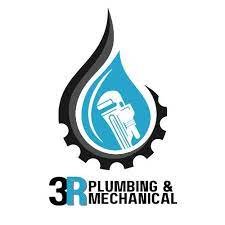How to Compare Tankless Water Heaters vs. Traditional Water Heaters: Which Is Best for Your Home?
When it comes to ensuring your home has a reliable supply of hot water, choosing the right water heater is a critical decision. The two main options available today are tankless water heaters and traditional tank-style water heaters. Both systems have unique benefits, and understanding their differences can help you make the best choice for your home, budget, and lifestyle. This guide will break down the pros, cons, costs, and features of each option to help you determine which water heating solution is best for you.
How Traditional Water Heaters Work
Traditional water heaters store a set amount of water—typically between 30 and 80 gallons—in a tank and keep it heated 24/7. This ensures that hot water is readily available when needed but can also result in standby heat loss, where energy is wasted to maintain the water temperature even when you’re not using it.
Pros of Traditional Water Heaters:
Lower Initial Cost: Traditional systems are more affordable upfront and easier to install.
Simplicity: They are widely used and understood, which means repairs and maintenance are generally straightforward.
Meets Basic Needs: Ideal for smaller households with moderate water demand.
Cons of Traditional Water Heaters:
Limited Hot Water Supply: Once the tank is emptied, you have to wait for it to refill and reheat, which can be frustrating during peak usage.
Higher Energy Costs: Continuous heating leads to energy loss, especially in older models.
Shorter Lifespan: Traditional tanks typically last 8-12 years, which is shorter compared to tankless systems.
How Tankless Water Heaters Work
Tankless water heaters, often referred to as on-demand water heaters, heat water only when you need it. Instead of storing water, these systems use electric coils or gas burners to instantly heat water as it flows through the unit. This means you get a continuous supply of hot water without the need for a tank.
Pros of Tankless Water Heaters:
Unlimited Hot Water: No matter how long you shower or how many appliances are running, a tankless system provides endless hot water.
Energy Efficiency: Since water is heated only when needed, energy waste is significantly reduced, leading to lower utility bills.
Longer Lifespan: Tankless systems can last up to 20 years or more with proper maintenance.
Space-Saving Design: Tankless systems are compact and can be installed on walls, freeing up valuable space.
Cons of Tankless Water Heaters:
Higher Upfront Cost: Tankless systems are more expensive to purchase and install, especially if your home needs plumbing upgrades.
Flow Rate Limitations: Tankless heaters may struggle to supply hot water to multiple fixtures at once in larger homes.
Complex Installation: Depending on your home’s existing plumbing and energy supply, installation can be more labor-intensive.
Key Factors to Consider When Choosing Between Tankless and Traditional Water Heaters
When deciding which system is best for your home, it’s important to evaluate your household needs, budget, and long-term goals. Here are the key factors to consider:
1. Hot Water Demand
Small Households: A traditional tank-style water heater may be sufficient for homes with 2-3 people where hot water demand is low.
Larger Households: Tankless systems provide a continuous supply of hot water, making them ideal for families with high water usage.
2. Energy Efficiency
Traditional Systems: These systems waste energy by continuously heating stored water, even when it’s not in use.
Tankless Systems: Tankless water heaters are up to 30% more energy-efficient, saving you money on monthly utility bills.
3. Upfront Costs vs. Long-Term Savings
Traditional Systems: Lower upfront costs make them appealing for homeowners on a tight budget. However, higher energy bills over time can offset the savings.
Tankless Systems: While the initial investment is higher, the long-term savings from lower energy usage and a longer lifespan often make tankless systems more cost-effective in the long run.
4. Space Requirements
Traditional Systems: These units require a significant amount of space for the tank, which may be challenging in smaller homes.
Tankless Systems: Compact and wall-mounted, tankless heaters are perfect for homes with limited space.
5. Lifespan
Traditional water heaters last an average of 8-12 years.
Tankless water heaters last up to 20 years, making them a more durable investment.
Which Option Is Right for You?
If you value energy efficiency, endless hot water, and long-term savings, a tankless water heater may be the best choice for your home. However, if you’re looking for a lower upfront cost and have moderate hot water needs, a traditional water heater could still be a reliable option.
For Massachusetts homeowners looking to upgrade, consider working with 3R Plumbing & Mechanical. We specialize in tankless water heater installations and traditional system replacements, offering expert guidance to help you choose the best system for your home.
The 3R Plumbing & Mechanical Advantage
Whether you’re considering a tankless water heater or a traditional system, 3R Plumbing & Mechanical can help. Our team of experienced professionals offers:
Personalized Consultations: We’ll assess your household needs and recommend the most efficient and cost-effective option.
Professional Installation: From new installations to system upgrades, our team ensures flawless performance.
Financing Options: Take advantage of affordable financing plans like GreenSky Financing to make upgrading your water heater stress-free.
Ongoing Maintenance: Keep your water heater running efficiently with regular maintenance and tune-ups.
Ready to Upgrade Your Water Heater? Contact Us Today!
If you’re ready to explore your water heating options, give 3R Plumbing & Mechanical a call today at 781-312-0316 or visit our website at 3R Plumbing & Mechanical. Our team is here to help you choose the right system, ensure a professional installation, and keep your hot water flowing reliably.
